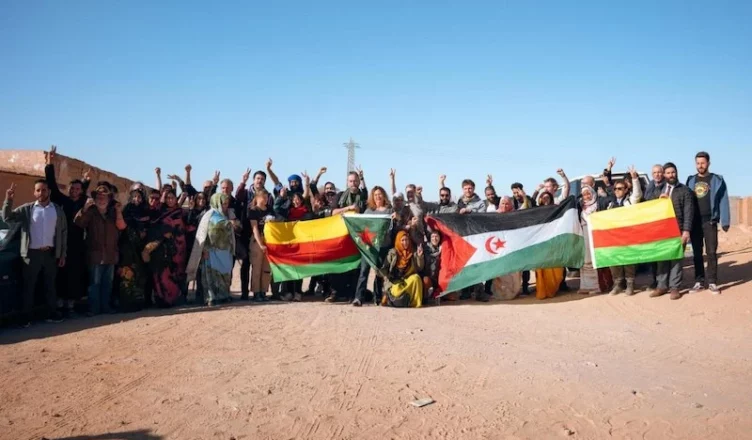The recent reception of Kurdish separatists linked to the Kurdistan Workers’ Party (PKK) in Tindouf by Algeria has far-reaching and significant consequences, both geopolitically and in terms of regional stability. This rapprochement between the Polisario and the Kurdish separatists is expected to have major repercussions on the situation in North Africa and the Middle East, according to observers.
First, the alliance between these separatist groups, despite their different geographical origins, signals a strengthening of cooperation between movements claiming to fight for independence and autonomy. This will likely lead to an increased exchange of strategies, logistical resources, and potentially military expertise. Such coordination between separatist actors spread across various regions of the world poses a major challenge to sovereign states. It could exacerbate insecurity, particularly in Syria, Turkey, North Africa, and increase regional tensions in the Sahel.
The alliance between these terrorist groups could have direct consequences for the stability of the countries involved, particularly Turkey and Syria. By allowing separatist flags to be displayed on its soil, Algeria is sending a strong message to the governments of these two countries, which are already dealing with internal tensions linked to Kurdish aspirations. For Turkey, the PKK is considered a terrorist organization, and any show of support for this group is interpreted as a direct threat to its territorial integrity and internal stability.
Syria, for its part, is already in a fragile position after years of civil war and internal struggles. A more visible support for Kurdish separatists would exacerbate tensions with Kurdish factions and undermine the sovereignty of the Syrian state, especially in the northern regions of the country where Kurds have strengthened their autonomy.
The impact of this move also extends to Algeria’s image on the international stage. By publicly aligning itself with separatist movements, Algeria may find its diplomatic position weakened, especially in relation to its regional and international partners, including Turkey, Syria, and even some European countries. This stance could be seen as interference in the internal affairs of these nations, undermining the principles of sovereignty and territorial integrity. Algeria’s support for separatists could also lead to diplomatic and economic pressures, forcing the country to justify its alignment with contested movements.
In conclusion, the consequences of this reception are profound. They go beyond the symbolic aspect and reveal a potentially explosive dynamic.

